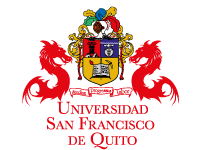A Decarbonization Strategy for Preserving the Galapagos Islands with Green Hydrogen in Maritime Transportation: Empowering a Sustainable and Inclusive Green Tourism
Team:
– Prof. Alfredo Valarezo, PhD. (Team leader USFQ)
– Prof. Marco León (USFQ)
– Prof. M. Lorena Bejarano, PhD. (USFQ)
– Prof. David Escudero, PhD. (USFQ)
– Emilia Ramos (USFQ)
– Westly Castro (USFQ)
– Krustkaya Yépez (USFQ)
– Prof. Dimitri Mignard PhD. (Team leader UoE)
– Prof. Camilla Thomson, PhD. (UoE)
– Prof. David Ingram, PhD. (UoE)
Abstract:
Our work is a proposal for implementing green hydrogen as a key component in decarbonizing maritime transportation in the Galapagos Islands. The objective is to transition interisland transportation for tourists using fuel-cell-powered ferries. Leveraging renewable energy sources, particularly wind and solar, as well as a mix of them, an integrated techno-economic analysis of the
system is presented for producing, storing, and utilizing green hydrogen fuel. The study includes an inclusive approach that involves the local community through focus groups, interviews, and training programs, ensuring their active participation.
Additionally, a Life Cycle Assessment (LCA) is
incorporated to comprehensively evaluate the environmental impact of the system. The approach addresses the unique challenges of the remote islands, focusing on the environmental impact and local sources of solar radiation and wind speeds in the vicinity of Baltra Island. The work includes a construction plan for a hydrogen plant capable of producing about 600 kg of hydrogen per day, utilizing AEM (anion-exchange membrane) modular electrolyzers for production and batteries and hydrogen tanks for storage. The feasibility and costs of three project scenarios (wind, solar, and hybrid) regarding energy coverage throughout the year, excess energy production fed to the grid, and cost sensitivity analyses of the energy market are thoroughly examined. This work contributes to the broader goal of achieving NetZero carbon for the Galapagos and preserving the pristine ecosystems of this UNESCO World Heritage site
Publications:
Alfredo, V., Emilia, R., Westly, C., Marco, L., Krutskaya, Y., M. Lorena, B., David, E., David, I., Dimitri, M., & Camilla, T. (2024, September 16), A Decarbonization Strategy for Preserving the Galapagos Islands with Green Hydrogen in Maritime Transportation: Empowering a Sustainable and Inclusive Green Tourism. Proceedings of the ASME 2024. International Mechanical Engineering Congress and Exposition IMECE2024. Portland, Oregon. IMECE2024-145460

Figure. Overall System operation of the proposed project. Hydrogen production is concentrated on Baltra Island. Three H2-ferries powered by fuel cells cover the inter-island transportation of tourists.

Figure: Conceptual diagram of green-hydrogen implementation in the Galapagos Islands and mainland Ecuador.

Figure: Schematic diagram of the hydrogen fueling station, with three possible scenarios of energy production: a) wind power –wps, b) solar –pvs, c) hybrid pvs/wps.

Figure: Total present values of costs for the H2 plant in the lifetime (cinv – cost of investment or capital cost)

Figure: Heat map regarding price and percentage of electricity sold vs. LCOH: a) Wind Powered System. b) PV-Photo-Voltaic System. c) Hybrid Wind and PV; Heat map regarding price and percentage of electricity sold vs. NPV in MM USD: d) Wind Powered System. e) PV-Photo-Voltaic System. f) Hybrid Wind and PV.

Figure: Our work contributes to the broader goal of achieving NetZero carbon for the Galapagos Islands and preserving the pristine ecosystems of this UNESCO World Heritage site

